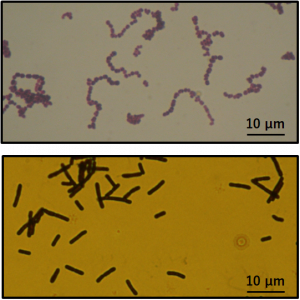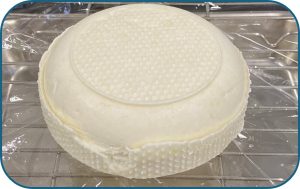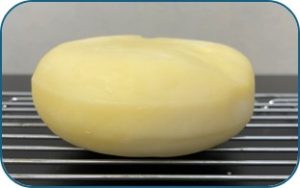Research on fermented dairy products
We conducting research on fermented dairy products using lactic acid bacteria (LAB) isolated from milk. Specifically, we are focusing on LAB that have the ability to coagulate milk and produce aromatic and antibacterial substances, exploring their application in fermented dairy products.

1. Isolation and Identification of Lactic Acid Bacteria
We are isolating and identifying LAB from milk and other sources. The identification process is conducted based on physiological and biochemical properties, as well as through 16S rRNA gene sequence analysis. For the isolated LAB strains, we are investigating their potential applications in dairy products, with particular focus on strains exhibiting milk coagulation properties and those capable of producing aromatic compounds and antimicrobial substances. Additionally, we are considering the application of these findings to dairy products through molecular biological analyses using genomic data.

top: Streptococcus; bottom: Lactobacillus
2. Changes in Components During Cheese Production
Gouda cheese is a semi-hard cheese variety characterized by its evolving flavor profile during maturation. Young Gouda exhibits a mild taste, which develops into a distinct nutty aroma and complex flavor profile as it ages. This characteristic nutty aroma can be attributed to various volatile compounds produced during ripening. Certain LAB strains have been demonstrated to produce these aromatic components. In our current research, we are utilizing selected LAB strains for the production of baby Gouda cheese and investigating the changes in flavor compounds during the cheese ripening process.


top: day 1 of baby gouda; day 30
3. Application of Antimicrobial Substances Producing LAB
A Loigolactobacillus coryniformis strain maintained in our laboratory produces an antimicrobial compound known as reuterin. This bioactive substance exhibits significant antifungal properties and demonstrates a broad spectrum of antimicrobial activity, thereby contributing to food preservation. Our research group is currently investigating novel methods to apply this lactic acid bacterial strain to cheese manufacturing processes.
